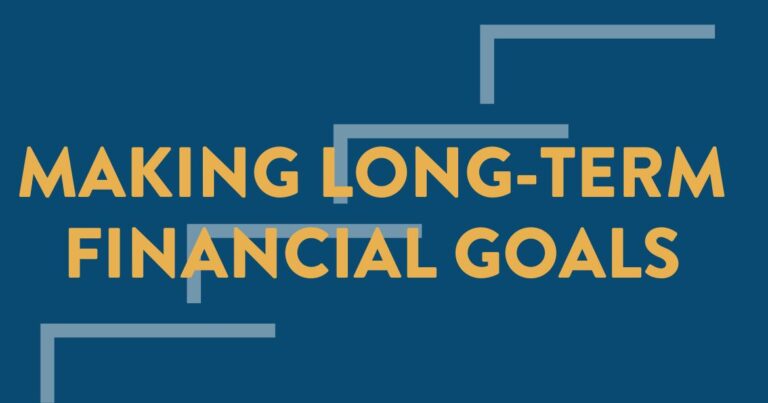The other day, sometime early in the afternoon, I was walking through the office by a mirror and spotted a hole in the side of my shirt. I just happened to catch a glimpse of it, and wouldn’t you know it I had been around multiple friends and coworkers that day, and none of them spoke up to tell me. I proceeded to walk into my friend’s office and question them about it, and they simply said “I thought you knew.”
As minor (thankfully) as this snafu was, it got me thinking… What if there was a major hole in your financial plan? One that no one told you about because they assumed you already had it figured out?
Some Sobering Statistics
- Only 59% of Americans have life insurance, and about half of those who have it are still underinsured.
- If we shift our focus to long-term care, the numbers are even more concerning. Fewer than 1 in 30 Americans own a long-term care insurance policy, and only about 7% of adults over 50.
- However, common estimates say that about 50% of older adults will need long-term care at some point in their lives.
- For adults over 65, the odds shoot up to 70%.*
As you can see, if you’re underinsured – or worse yet, have no insurance plan – you have a gaping hole in your financial plan that could not only affect your money but your entire life.
L-I-F-E
Let’s attempt to set aside emotions for a moment and think solely of the logistics of this question: What happens to your family if you don’t come home tomorrow?
It’s never a fun thought to have, but it’s important that you know the answer and are confident that your family will be okay financially. Can they afford to lose your income and still function without losing their quality of life? If you aren’t currently making an income, can your family afford to take care of the things you would usually take care of that they then might have to pay someone outside of the family to manage (think cleaning the house, walking the dog, caring for your children, etc.)? These expenses can add up quickly!
Hear me when I say: having life insurance through your employer is good, and I won’t discredit the benefit that provides, but it’s likely not enough on its own. The average group coverage amount offered by employers ranges from $10,000 – $25,000.*** While considering that outside of tragic circumstances may seem like a fairly substantial amount, maybe at least enough to get you through a little while without your significant other’s income, the average cost for a burial is around $9,000. That takes up a good portion of your employer’s coverage before you even consider things like the mortgage, car payments, and other bills.
Shifting your perspective and considering the amount of coverage as income replacement can help you determine the right amount of coverage for you and your family. And, a trusted advisor can help you navigate these difficult conversations with clarity.
Everyone Needs a Little LTC
Given the above statistics, it’s fair to say that it’s highly likely that at least one person of a couple nearing or in retirement will require some sort of long-term care. But what does that mean, exactly?
Qualifying for long-term care means you aren’t able to perform two of the six activities of daily living and/or you must have cognitive impairments that require you to have substantial supervision (i.e. Alzheimer’s disease, dementia, etc).
The six activities of daily living are:
- Bathing
- Transferring
- Continence
- Dressing
- Toileting
- Eating
If you do end up needing long-term care, the costs can add up quickly. Depending on the level of care you need, costs can range from an average of $48,000 to over $100,000 per year.** That’s an expense that could wreck your financial independence if it’s not properly prepared for! I know it isn’t fun to consider the possibility that you might have a need for long-term care, but the alternative of possibly needing long-term care and not having a plan in place to help you cover the expense is much more devastating. How do we recommend you cover it? You have four options:
- Self insure
- Medicaid
- Traditional long-term care
- Life insurance with chronic illness rider
Any of these options could be your answer, but if I gave a blanket recommendation for everyone that ends up on this page, I wouldn’t be making the recommendation that’s in your best interest. Everyone’s situation is unique, and if you’d like more guidance I’m more than happy to help.
Listen, I know having these conversations can be difficult. Not being prepared for an unfortunate event would likely be more so. In fact, that’s the whole point of having a financial plan – to give you options and to help you focus on what matters because you’ve already accounted for the what-ifs of life.
The opinions voiced in this material are for general information only and are not intended to provide specific advice or recommendations for any individual. Reference: *LIMRA **GenWorth ***US Bureau of Labor and Statistics




